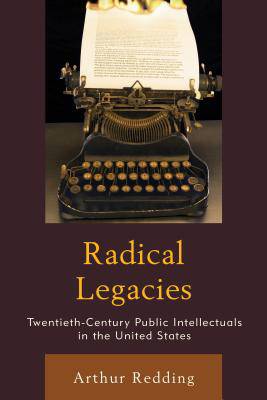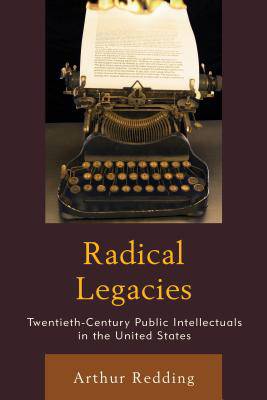
Bedankt voor het vertrouwen het afgelopen jaar! Om jou te bedanken bieden we GRATIS verzending (in België) aan op alles gedurende de hele maand januari.
- Afhalen na 1 uur in een winkel met voorraad
- In januari gratis thuislevering in België
- Ruim aanbod met 7 miljoen producten
Bedankt voor het vertrouwen het afgelopen jaar! Om jou te bedanken bieden we GRATIS verzending (in België) aan op alles gedurende de hele maand januari.
- Afhalen na 1 uur in een winkel met voorraad
- In januari gratis thuislevering in België
- Ruim aanbod met 7 miljoen producten
Zoeken
Radical Legacies
Twentieth-Century Public Intellectuals in the United States
Arthur Redding
Paperback | Engels
€ 82,45
+ 164 punten
Omschrijving
What use is thinking? This study addresses the ways in which modern American thinkers have intervened in the public sphere and attempted to mediate relations between social and political institutions and cultural and intellectual production. Chapters on both well-known (Henry Adams, Langston Hughes, C. Wright Mills, Angela Davis) and neglected (Randolph Bourne, Mary McCarthy, Paul Goodman) public intellectuals considers how these figures have address a range of problems, including the dangers and difficulty of critical dissent thought during wartime, the contemporary crisis of the humanities under neoliberalism, the legacy of American anti-intellectualism, academic professionalism, and the perils of consumer culture and popular tastes. This book reviews in as critically sympathetic a manner as possible a select few of the minor and major currents of twentieth-century American radical thinking in order to see where they might take us, and how they inflect our current social and intellectual predicaments. Arguing that any "use-value" theory of intellectual production is limiting, Radical Legacies endeavors to maintain and expand a space and reassert an argument for the importance of sustained critical reflection on our collective dilemmas today. It assesses a practice of thought that is engaged, committed, involved, and timely, without being necessarily "practical" or even useful.
Specificaties
Betrokkenen
- Auteur(s):
- Uitgeverij:
Inhoud
- Aantal bladzijden:
- 172
- Taal:
- Engels
Eigenschappen
- Productcode (EAN):
- 9781498512688
- Verschijningsdatum:
- 7/08/2017
- Uitvoering:
- Paperback
- Formaat:
- Trade paperback (VS)
- Afmetingen:
- 156 mm x 234 mm
- Gewicht:
- 244 g

Alleen bij Standaard Boekhandel
+ 164 punten op je klantenkaart van Standaard Boekhandel
Beoordelingen
We publiceren alleen reviews die voldoen aan de voorwaarden voor reviews. Bekijk onze voorwaarden voor reviews.









